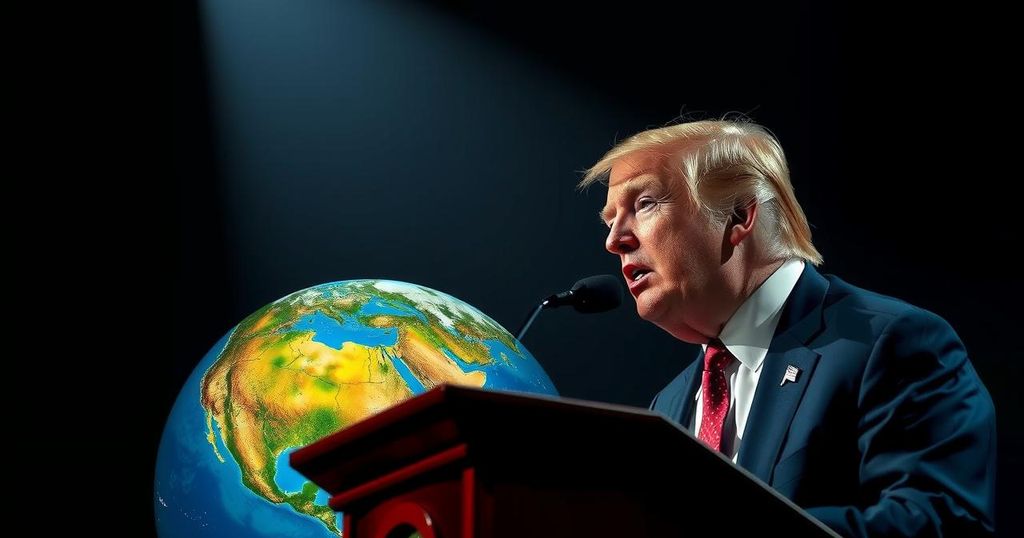Donald Trump’s election raises concerns regarding climate change efforts due to his history of skepticism toward climate science and withdrawal from the Paris Agreement. His policies favor fossil fuels, which could hinder global climate commitments and discourage other nations from pursuing ambitious climate actions. Despite these challenges, the global climate movement is expected to persist and adapt, emphasizing the necessity for continued international collaboration in combating climate change.
The United States’ position as a major greenhouse gas emitter significantly influences global climate policy. The recent election of Donald Trump as the 47th President brings considerable uncertainty, particularly following his past actions, including the withdrawal from the Paris Agreement and his expressed doubts about climate science. His initial administration promoted fossil fuel production and deregulation, a trend that may continue if he were to serve another term, jeopardizing international climate efforts. Trump’s isolationist stance could discourage other nations from fulfilling their climate commitments, potentially exacerbating environmental challenges globally. While his approach may pose risks to climate action, the resilience of the global climate movement could mitigate these impacts, emphasizing the importance of sustained international collaboration in addressing climate change despite US retreat.
The global effort to combat climate change relies heavily on leadership and collaboration, particularly from the United States, the largest historical emitter of greenhouse gases. The Paris Agreement represents a collective approach where nations commit to mitigating climate change. However, the skepticism toward climate science illustrated by Donald Trump during his first term and his subsequent withdrawal from international commitments raises concerns about future progress in global climate policy and cooperation. Trump’s potential second term could materially reshape the US role in climate negotiations, impacting international support systems and funding essential for climate action, particularly in vulnerable developing nations.
In conclusion, Donald Trump’s election as President poses significant threats to international climate initiatives through isolationist policies and promotion of fossil fuel dependence. His actions may not only weaken the US commitment to the Paris Agreement but may also embolden other nations to reconsider their climate obligations. However, the global push for clean energy and climate action remains steadfast, indicating that international cooperation will continue to drive progress despite potential setbacks in US leadership.
Original Source: www.manilatimes.net







